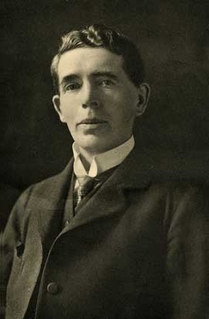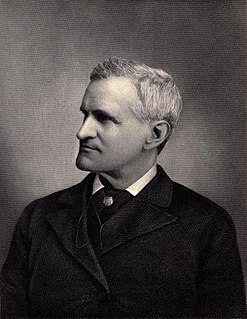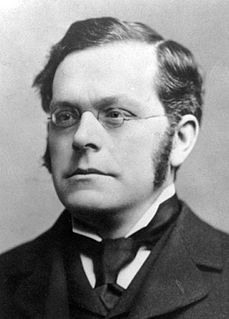A Quote by J. B. Bury
I may remind you that history is not a branch of literature. The facts of history, like the facts of geology or astronomy, can supply material for literary art; for manifest reasons they lend themselves to artistic representation far more readily than those of the natural sciences; but to clothe the story of human society in a literary dress is no more the part of a historian as a historian, than it is the part of an astronomer as an astronomer to present in an artistic shape the story of the stars.
Quote Topics
Art
Artistic
Astronomy
Branch
Dress
Facts
Far
Geology
Historian
History
Human
Human Society
Lend
Like
Literary
Literary Art
Literature
Manifest
Material
May
More
Natural
Natural Science
Natural Sciences
Part
Present
Readily
Reasons
Remind
Representation
Sciences
Shape
Society
Stars
Story
Supply
Than
Themselves
Those
Related Quotes
Contemporary art is based on that an artist is supposed to go into art history in the same way as an art historian. When the artist produces something he or she relates to it with the eye of an art historian/critic. I have the feeling that when I am working it is more like working with soap opera or glamour. It is emotional and not art criticism or history of art.
The facts are really not at all like fish on the fishmonger's slab. They are like fish swimming about in a vast and sometimes inaccessible ocean; and what the historian catches will depend, partly on chance, but mainly on what part of the ocean he chooses to fish in and what tackle he chooses to use - these two factors being, of course, determined by the kind of fish he wants to catch. By and large, the historian will get the kind of facts he wants. History means interpretation.
Fiction and nonfiction are not so easily divided. Fiction may not be real, but it's true; it goes beyond the garland of facts to get to emotional and psychological truths. As for nonfiction, for history, it may be real, but its truth is slippery, hard to access, with no fixed meaning bolted to it. If history doesn't become story, it dies to everyone except the historian.
Facts are neutral until human beings add their own meaning to those facts. People make their decisions based on what the facts mean to them, not on the facts themselves. The meaning they add to facts depends on their current story … facts are not terribly useful to influencing others. People don’t need new facts—they need a new story.
Faithfulness to the truth of history involves far more than a research, however patient and scrupulous, into special facts. Such facts may be detailed with the most minute exactness, and yet the narrative, taken as a whole, may be unmeaning or untrue. The narrator must seek to imbue himself with the life and spirit of the time. He must study events in their bearings near and remote; in the character, habits, and manners of those who took part in them. He must himself be, as it were, a sharer or a spectator of the action he describes.
I feel history is more of a story than a lesson. I know this idea of presentism: this idea of constantly evoking the past to justify the present moment. A lot of people will tell you, "history is how we got here." And learning from the lessons of history. But that's imperfect. If you learn from history you can do things for all the wrong reasons.
Generally speaking, geologists seem to have been much more intent on making little worlds of their own, than in examining the crust of that which they inhabit. It would be much more desirable that facts should be placed in the foreground and theories in the distance, than that theories should be brought forward at the expense of facts. So that, in after times, when the speculations of the present day shall have passed away, from a greater accumulation of information, the facts may be readily seized and converted to account.
I love to revel in philosophical matters-especially astronomy. I study astronomy more than any other foolishness there is. I am a perfect slave to it. I am at it all the time. I have got more smoked glass than clothes. I am as familiar with the stars as the comets are. I know all the facts and figures and have all the knowledge there is concerning them. I yelp astronomy like a sun-dog, and paw the constellations like Ursa Major.
The true historian, therefore, seeking to compose a true picture of the thing acted, must collect facts and combine facts. Methods will differ, styles will differ. Nobody ever does anything like anybody else; but the end in view is generally the same, and the historian's end is truthful narration. Maxims he will have, if he is wise, never a one; and as for a moral, if he tell his story well, it will need none; if he tell it ill, it will deserve none.
Hardly a pure science, history is closer to animal husbandry than it is to mathematics in that it involves selective breeding. The principal difference between the husbandryman and the historian is that the former breeds sheep or cows or such and the latter breeds (assumed) facts. The husbandryman uses his skills to enrich the future, the historian uses his to enrich the past. Both are usually up to their ankles in bullshit.
As a historian of American and African-American religion, I know that the Trayvon Martin moment is just one moment in a history of racism in America that, in large part, has its underpinnings in Christianity and its history. Those of us who teach American Religion have a responsibility to tell all of the story, not just the nice touchy-feely parts.






































